Veteran correspondent Maxmilian Wechsler recalls some of his most interesting and exclusive assignments from the past two decades.
FROM THE YEAR 2005 The following is how Max reported on the tragedy: The reconstruction began immediately afterward and is being kept up at a good pace in most affected areas.
The tsunami of December 26, 2004 was the result of the greatest earthquake in 40 years, measuring 9.0 on the Richter scale, with its epicentre at 150 kilometres off the west coast of northern Sumatra and more than 500 km from the west coast of Thailand. Despite the distance, the giant waves struck there on a beautiful Sunday morning with an unimaginable power and left behind destruction of biblical proportions.
The catastrophe that caused death and injury to thousands of Thais and foreign tourists and left hotels, resorts, shops, businesses, private houses and motor vehicles in ruins was completely unexpected.
“We know that disasters like fires, storms or earthquakes can occur here, but we never expected that a tsunami would reach us and destroy our lives,” said Mustafa, a long-tail boat driver from Phi Phi island in Krabi province, which was one of the most heavily devastated areas. Hundreds of thousands of people lost their means of livelihood, at least temporarily. Nearly 400 fishing villages along the Andaman coast were seriously affected, the waves laying fishing boats to waste by the thousands. Another approximately 120,000 people saw their incomes vanish along with the tourists who stayed away, partly out of fear of another tsunami and partly out of respect for all those in mourning.
The reconstruction began immediately and is still being kept u at a good pace in most affected areas. Many Thais and foreigners, both tourists and expatriates, were quick to volunteer to help the victims. One of those is Angelo Rasamimanana, a Frenchman, who owned Ma Ma restaurant on Phi Phi island for 19 years until it was swept away on that fateful day. He collaborated in January 2005 with three of his countrymen to establish a relief organisation called Phi Phi Releve Toi.
“We are based in Krabi and are helping people from Phi Phi island who are now on the mainland. Most of them are Thai Muslims, who make up the biggest part of the population there,” Angelo explained.
He added: “We are involved in the construction of schools, houses and temporary shelters and also help with the education of orphans, support senior citizens, pay rentals for people who are waiting for their houses to be completed, provide scholarships for students, organise sporting events and summer camps and supply school uniforms, as well as provide some other assistance.”
Angelo said that financial contributions were coming in from many sources all over the world. Wassana Ditracha from Ban Namkhem village is one of the reportedly 150 Thai tsunami victims in the area who have converted from Buddhism to Christianity. She explained what had made her change her faith: “I was running away from the approaching wave, which hurled me10 metres above the ground, right on top of a large tree. I was safe but I lost everything and I was in shock and I didn’t know what to do.” It was then that she met some people from the Hope of Takuapa Church who helped her and many others to overcome the trauma.
According to Pastor Chatchawan and Pastor Jujit from the Hope of Takuapa Church, “at this moment we have five people helping, but we have joined with some foundations and received assistance from Hope of Bangkok Church, ServLife Foundation in America and Christians from California to distribute necessary items for daily life to tsunami victims.”
Ban Namkhem village, which was totally devastated, has also received help from many other individuals,organisations and businesses. Wassana and her husband and other families have already moved into nice houses built with support from Thai television channel iTV.
The tsunami of December 26, 2004 was the result of the greatest earthquake in 40 years, measuring 9.0 on the Richter scale, with its epicentre at 150 kilometres off the west coast of northern Sumatra and more than 500 km from the west coast of Thailand. Despite the distance, the giant waves struck there on a beautiful Sunday morning with an unimaginable power and left behind destruction of biblical proportions.
The catastrophe that caused death and injury to thousands of Thais and foreign tourists and left hotels, resorts, shops, businesses, private houses and motor vehicles in ruins was completely unexpected.
“We know that disasters like fires, storms or earthquakes can occur here, but we never expected that a tsunami would reach us and destroy our lives,” said Mustafa, a long-tail boat driver from Phi Phi island in Krabi province, which was one of the most heavily devastated areas. Hundreds of thousands of people lost their means of livelihood, at least temporarily. Nearly 400 fishing villages along the Andaman coast were seriously affected, the waves laying fishing boats to waste by the thousands. Another approximately 120,000 people saw their incomes vanish along with the tourists who stayed away, partly out of fear of another tsunami and partly out of respect for all those in mourning.
The reconstruction began immediately and is still being kept u at a good pace in most affected areas. Many Thais and foreigners, both tourists and expatriates, were quick to volunteer to help the victims. One of those is Angelo Rasamimanana, a Frenchman, who owned Ma Ma restaurant on Phi Phi island for 19 years until it was swept away on that fateful day. He collaborated in January 2005 with three of his countrymen to establish a relief organisation called Phi Phi Releve Toi.
“We are based in Krabi and are helping people from Phi Phi island who are now on the mainland. Most of them are Thai Muslims, who make up the biggest part of the population there,” Angelo explained.
He added: “We are involved in the construction of schools, houses and temporary shelters and also help with the education of orphans, support senior citizens, pay rentals for people who are waiting for their houses to be completed, provide scholarships for students, organise sporting events and summer camps and supply school uniforms, as well as provide some other assistance.”
Angelo said that financial contributions were coming in from many sources all over the world. Wassana Ditracha from Ban Namkhem village is one of the reportedly 150 Thai tsunami victims in the area who have converted from Buddhism to Christianity. She explained what had made her change her faith: “I was running away from the approaching wave, which hurled me10 metres above the ground, right on top of a large tree. I was safe but I lost everything and I was in shock and I didn’t know what to do.” It was then that she met some people from the Hope of Takuapa Church who helped her and many others to overcome the trauma.
According to Pastor Chatchawan and Pastor Jujit from the Hope of Takuapa Church, “at this moment we have five people helping, but we have joined with some foundations and received assistance from Hope of Bangkok Church, ServLife Foundation in America and Christians from California to distribute necessary items for daily life to tsunami victims.”
Ban Namkhem village, which was totally devastated, has also received help from many other individuals,organisations and businesses. Wassana and her husband and other families have already moved into nice houses built with support from Thai television channel iTV.
Phi Phi will be ready for high season
|
The Nong Kok refugee camp which was built as a temporary shelter last January, has 60 houses where 300 people from 70 families live.
A majority of them are Muslims from Phi Phi island who have lost everything. Ninety per cent of the men are long-tail boat drivers. The facilities have been constructed and maintained with assistance from the central Thai government, the local administration in Krabi, the local Muslim community, Phi Phi Releve Toi and other foundations. The United Nations Children’s Fund also built a playground for children. Janthawan Yimyin is a Buddhist and a leader at the refugee camp. She had lived for 19 years on Phi Phi island, where she owned a travel agency and a bookshop. She lost everything to the tsunami. “Fifteen thousand books, mostly brand-new, have gone with the tsunami and I have lost around 2 million baht, not counting the cost of the building.” Janthawan does a lot of work for the tsunami victims. For example, she arranged the donation of school uniforms for children. She also encourages the camp residents who are jobless to produce jewelry, batiks, candles, carvings, T-shirts and sarongs. “We sell our products to visitors, toshops and at the markets,” she said. According to her, the reconstruction of Phi Phi island is going full-speed ahead, with more people arriving to help daily, and she is certain that the island will be ready to welcome tourists when the next season begins in November. “Everyone should come back to Phi Phi and support us,” she urged. Teerawut Chaochang, who also lives in the camp, is a long-tail driver who lost everything. He now produces batik to make a living.
According to one local official, Phuket has fully recovered. The most popular beaches – Kata, Karon and Patong – are in perfect shape. He added that many broken boats still litter the area at Ban Namkhem but the reconstruction there, as well as on Phi Phi island, is progressing at a fast pace. The situation is worse at Khaolak, the official said, where five months after the tsunami clothes, shoes and even toys are still scattered around. “Destroyed and damaged buildings are everywhere in the same state as on the day the tsunami struck. The reconstruction there is going at a very slow pace. It is really a ‘graveyard’ because so many people died there,” he said.
He concluded that generally the Thai government and the military, the UN, local and foreign volunteers, together with relief organisations and churches are all working to continue the reconstruction and give hope to the people who have come out of the catastrophe alive. |
Behind the story: After the tsunami I visited affected areas a few times to see the destruction and later on the rebuilding with my own eyes. It was a rare time, when Thais and expats, many of whom had lost everything, including friends and relatives, joined hands to clear the debris and rebuild. Government officials also rolled up their sleeves as never before and joined in the reconstruction. The efforts across a wide spectrum of the population were as unprecedented as the scope of the catastrophe. Everyone was helping everyone, and the results were remarkably visible only a few short months after the tragedy. Fast-forward 15 years, and what the tsunami couldn’t destroy the advance of unsustainable tourism is threatening. Deutsche Welle, Germany’s public international TV broadcaster, recently produced a documentary entitled Thailand – Holiday Paradise in Danger, showing the extent of damage to beaches, ocean life and environment by the millions of foreign tourists swarming Thailand’s southern beaches and islands every year. What’s more, these ever-increasing tourist hordes mean that if there is a repeat of the underwater upheaval that caused the 2004 tsunami, it might result in even greater loss of life. An October 2018 report in Singapore’s The Straits Times (www.straitstimes.com/asia/se-asia/faulty-tsunami-warning-system-in-phuket-worries-locals) quotes locals in Phuket province as saying that 19 warning towers erected in Phuket after the tsunami are not working properly. The sirens are too low to hear, say the locals, so anyone close to the water might not be able to escape in time. |
Retiring at the top of his game
Police General Nopadol Somboonsub has won the respect and praise of foreign and domestic colleagues throughout the many phases of his distinguished career.
Four decades of hard work as a police officer elevated Nopadol Somboonsub all the way to the rank of four-star general – an achievement that very few can boast of. Now, as he nears retirement, he is able to look back with pride on his life’s work.
“When I was born, my father was commander of Police Region 3. He didn’t want me to be a police officer, but I feel it is my destiny to be in this career and I don’t regret a minute. Also, I hope that after my official retirement this October, I will be able to serve my country for a few more years in some other capacity.”
When asked about his greatest accomplishments as a police officer, Pol Gen Nopadol paused for a moment and replied simply: “There have been many. But the most important were when I was stationed in Pattaya, because I could help a lot of people there.”
Yet it was obvious he didn’t want to elaborate on his successes. Instead, he gave a detailed account of what he describes as his “biggest failure”, which came after being appointed as director-general of the Department of Special Investigations (DSI) – a Thai version of the US Federal Bureau of Investigation – under the Justice Ministry.
“The public had very high expectations for this new organisation, but some people in the Justice Ministry didn’t allow me to do what I sincerely believed in and wanted to do,” he said.
“We chose experienced and competent men and women from the police ranks, but certain people in the Justice Ministry did not understand our role and did not trust us. They appointed their own people who were less qualified for the job,” he added. “They also wanted the Royal Thai Police Office (RTPO) to be under the ministry. To achieve their aim they blamed us for everything, just because we were policemen.”
He said that what is important is not the name of the organisation, but the people in it. They must have experience and work hard. “If you assign any person to the DSI today, do you think that tomorrow he or she will be experienced?” he asked.
“To become a good investigator requires a lot of experience. You can’t read a textbook and become an expert the next day. I didn’t have a choice but to leave the DSI and return to the Royal Thai Police Office,” said the police general.
Four decades of hard work as a police officer elevated Nopadol Somboonsub all the way to the rank of four-star general – an achievement that very few can boast of. Now, as he nears retirement, he is able to look back with pride on his life’s work.
“When I was born, my father was commander of Police Region 3. He didn’t want me to be a police officer, but I feel it is my destiny to be in this career and I don’t regret a minute. Also, I hope that after my official retirement this October, I will be able to serve my country for a few more years in some other capacity.”
When asked about his greatest accomplishments as a police officer, Pol Gen Nopadol paused for a moment and replied simply: “There have been many. But the most important were when I was stationed in Pattaya, because I could help a lot of people there.”
Yet it was obvious he didn’t want to elaborate on his successes. Instead, he gave a detailed account of what he describes as his “biggest failure”, which came after being appointed as director-general of the Department of Special Investigations (DSI) – a Thai version of the US Federal Bureau of Investigation – under the Justice Ministry.
“The public had very high expectations for this new organisation, but some people in the Justice Ministry didn’t allow me to do what I sincerely believed in and wanted to do,” he said.
“We chose experienced and competent men and women from the police ranks, but certain people in the Justice Ministry did not understand our role and did not trust us. They appointed their own people who were less qualified for the job,” he added. “They also wanted the Royal Thai Police Office (RTPO) to be under the ministry. To achieve their aim they blamed us for everything, just because we were policemen.”
He said that what is important is not the name of the organisation, but the people in it. They must have experience and work hard. “If you assign any person to the DSI today, do you think that tomorrow he or she will be experienced?” he asked.
“To become a good investigator requires a lot of experience. You can’t read a textbook and become an expert the next day. I didn’t have a choice but to leave the DSI and return to the Royal Thai Police Office,” said the police general.
|
General is irreplaceable
The RTPO has won a lot of praise from outside the country, from both foreign law enforcement agencies and the private sector. Pol Gen Nopadol has contributed to the favourable international reputation of the RTPO through his role in solving many crimes in Thailand which involve foreign countries. Charles Young, a retired security chief for Bank of America’s Asia-Pacific division based in Hong Kong, had nothing but good words for the police general: “He is a good man and a good policeman who has always helped our bank and others. He deserves credit for the arrest of many international criminals.” Pol Gen Nopadol recalled one case: “It was one of the most important cases I have ever been involved in. Thanks to the cooperation of Mr Young and his bank, we arrested a big mafia figure who was dealing in traveler’s cheques and credit cards for a Hong Kong-based syndicate.” Australian ambassador to Thailand Bill Paterson had this to say about Police General Nopadol’s role as head of the Thai Tsunami Victim Identification (TTVI) in Phuket: “Police General Nopadol Somboonsub has been instrumental in ensuring appropriate measures have been established for Disaster Victim Identification. The Australian Federal Police have told me that the Royal ThaiPolice response has been nothing short of exceptional.” Pol Gen Nopadol enjoys an excellent professional and personal relationship with dozens of foreign experts who are located at a compound operated by the Telephone Organisation of Thailand in Phuket, where the identification of the bodies is progressing well. However, the process is extremely complicated and labour intensive, and could take up to two more years before it is completed. “We have sent 1,200 DNA samples to Sarajevo and 1,000 to Beijing,” said Pol Gen Nopadol. As for his plans after retirement, Pol Gen Nopadol is now weighing several options. He said he would like to continue to work for his country for another 4-5 years. |
Behind the story: It took some time to convince Pol Gen Nopadol to do the interview. I found him to be a different kind of a four-star General – his uniform wasn’t plastered with medals and other decorations and he had a reputation for being easily accessible to ordinary people and easy to talk and work with. This was certainly my experience. We had been introduced some years before by Charles Young from the Bank of America. I assisted the General in various investigations in Southeast Asian countries and conducted a few operations with him. These involved counterfeit currencies and lost/stolen travelers cheques, types of crime that were widespread then in Thailand, and mainly perpetrated by Thai syndicates with foreign helpers. His way of working cases was to operate quietly and discretely but most effectively. Despite his high rank, he sometimes went out on undercover operations with his staff. Pol Gen Nopadol was the first Director-General of the DSI, which was established in October 2002. During the planning stages he met with Mr Young, US Secret Service officers based in Thailand, and other individuals including myself to get input on how the DSI should function. After serving as chief of the DSI, Pol Gen Nopadol returned to the Royal Thai Police as deputy commissioner general and was later appointed head of the Thai Tsunami Victim Identification Information Management Centre. |
“I am seriously considering a run for senator from Bangkok. But I was approached lately by some ‘important’ people who want me to apply for a position at the National Counter Corruption Commission because I have a lot of experience in investigating money trails. And recently I was also asked by the RTPO to continue working with the TTVI because no one else knows want to do it,” Pol Gen Nopadol declared.

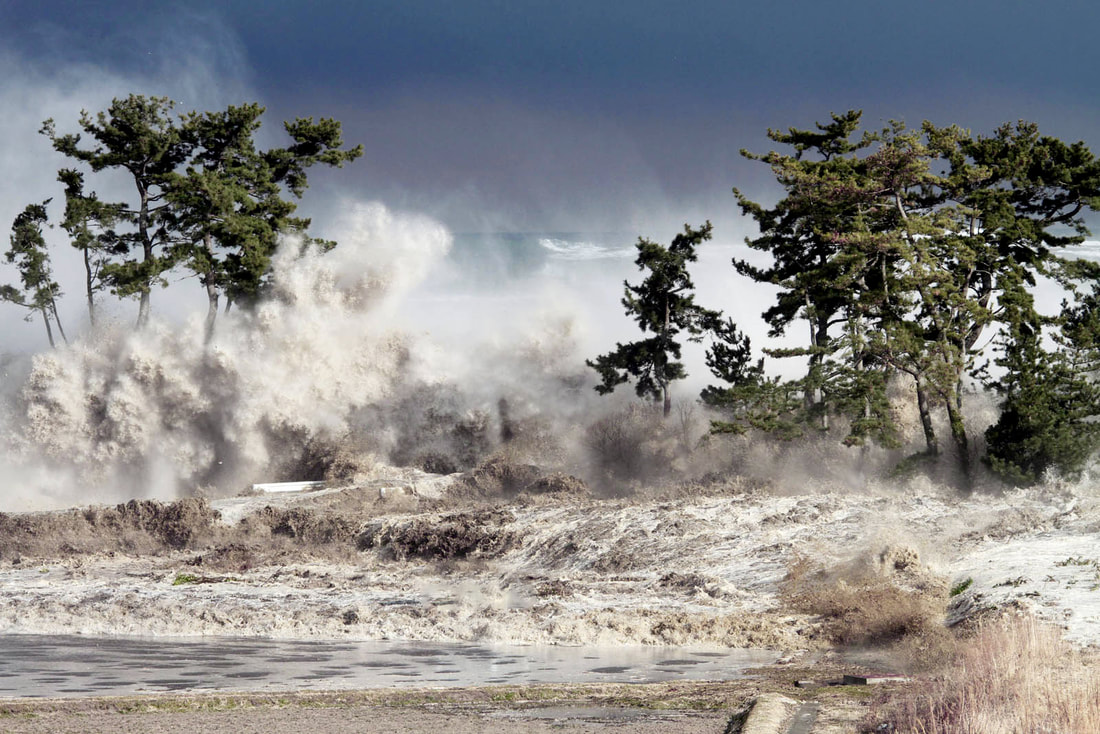

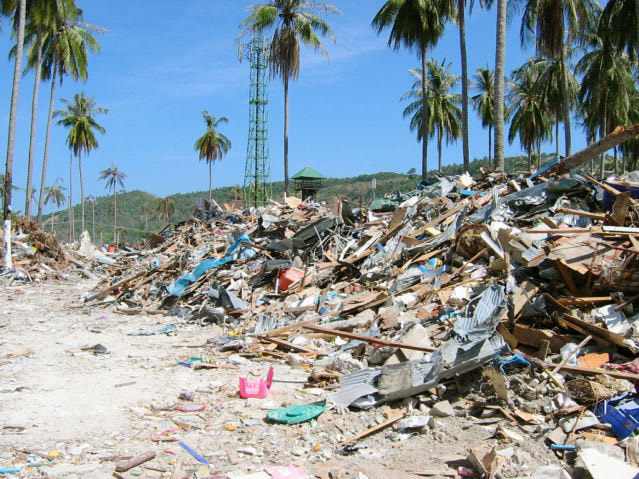
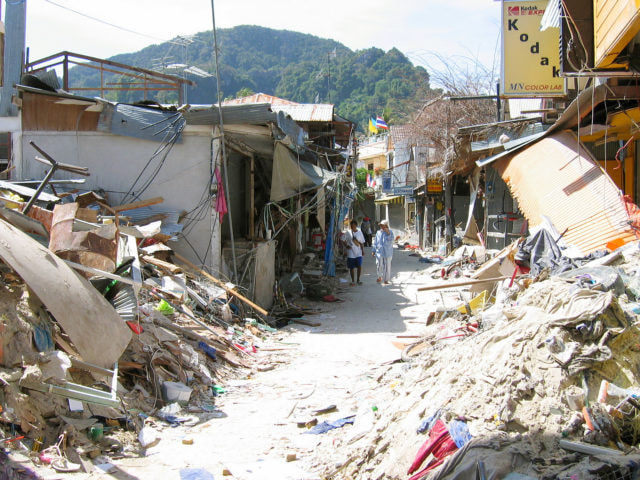
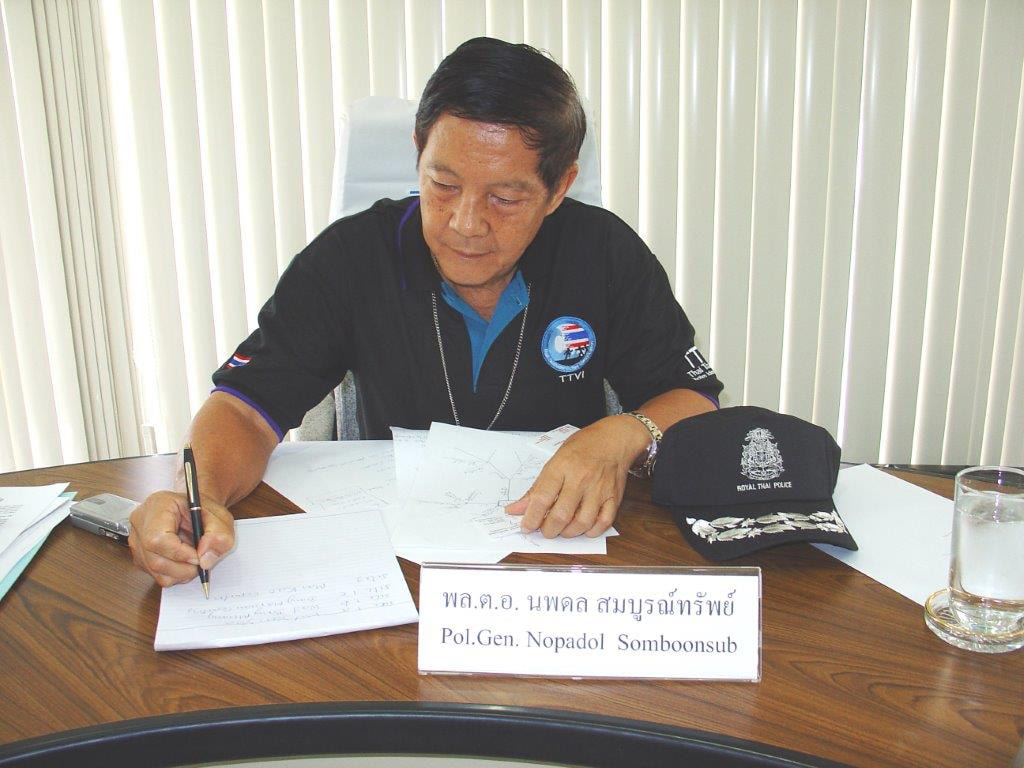
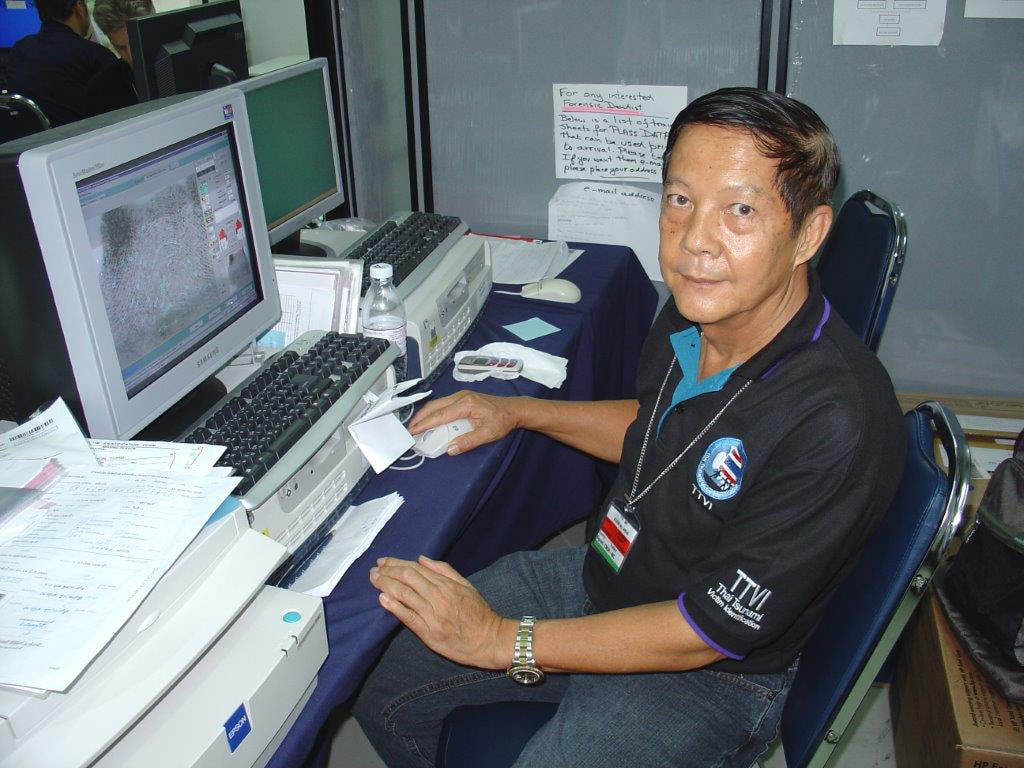
 RSS Feed
RSS Feed
















